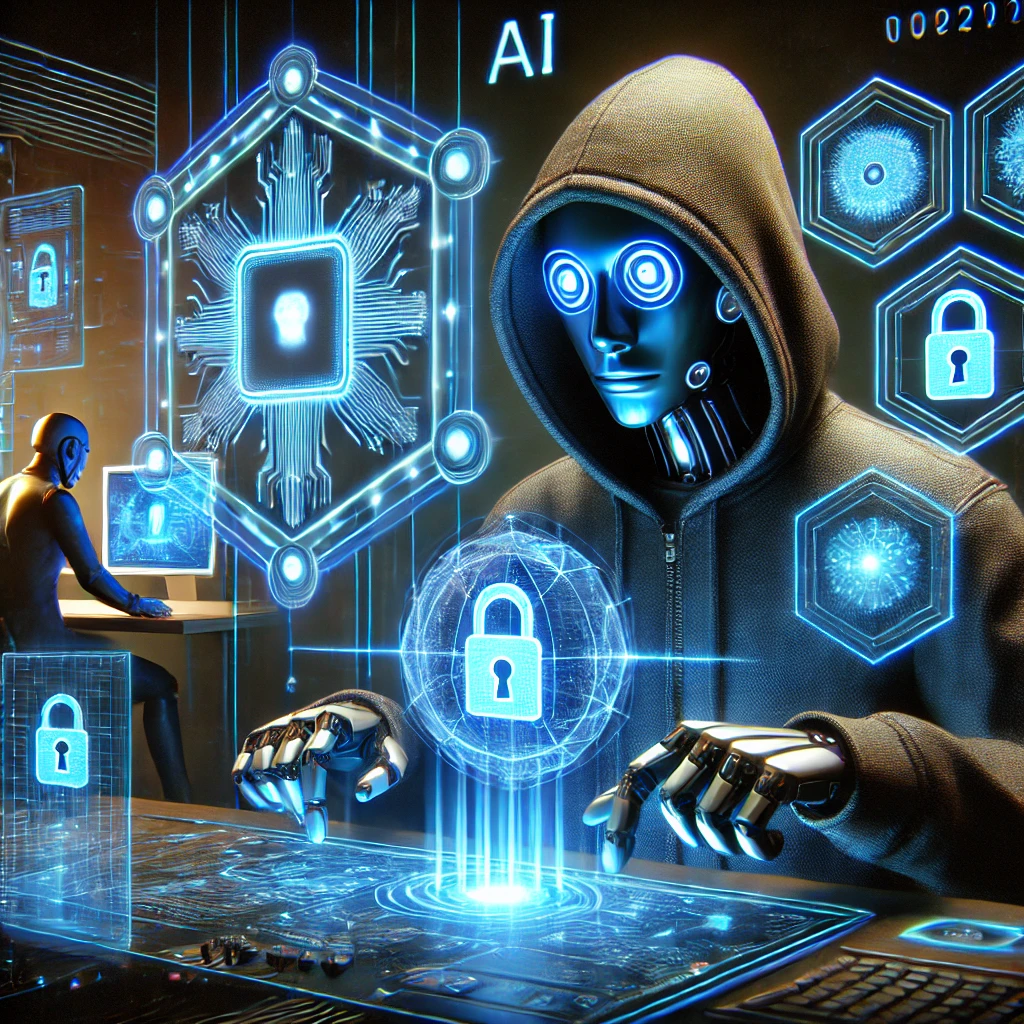Introduction
Artificial Intelligence (AI) is revolutionizing cybersecurity, offering powerful tools for threat detection and prevention. However, cybercriminals are also exploiting AI to launch sophisticated attacks. This article explores both the advantages and risks of AI in cybersecurity.

ow AI is Enhancing Cybersecurity
AI is helping organizations strengthen their defenses in several ways. Let’s look at some key areas:
1. AI-Powered Threat Detection
AI analyzes vast amounts of data in real time. As a result, it can identify anomalies that may indicate cyber threats. Moreover, machine learning (ML) enables predictive threat detection, helping organizations prevent attacks before they occur.
2. Automated Incident Response
AI-driven security systems can quickly detect and neutralize cyber threats. Consequently, this minimizes response time and reduces potential damage.
3. Fraud Prevention
Financial institutions leverage AI to detect fraudulent transactions. By analyzing user behavior patterns, AI helps prevent identity theft and financial fraud.
4. Predictive Analytics for Cyber Threats
AI helps organizations anticipate future cyber threats based on past attack patterns. Therefore, businesses can implement proactive security measures.
https://www.youtube.com/@Galikahacker
How Cybercriminals Exploit AI
While AI enhances cybersecurity, hackers are using it to develop more advanced threats. Here are some of the key ways cybercriminals are leveraging AI:
1. AI-Powered Phishing Attacks
AI generates realistic phishing emails that bypass traditional security filters. As a result, they become harder to detect.
2. Deepfake Attacks
AI-generated deepfakes can impersonate executives or officials. Consequently, they trick employees into revealing sensitive information.
3. AI-Generated Malware
Hackers use AI to create polymorphic malware that constantly evolves. This means traditional detection methods often fail.
4. AI-Driven Botnets
AI-powered botnets can launch large-scale Distributed Denial-of-Service (DDoS) attacks. Thus, they can cripple websites and online services.
The Future of AI in Cybersecurity
To combat AI-driven threats, the cybersecurity industry must adapt rapidly. Here are some key trends to watch:
- AI-Enhanced Security Systems: Advanced AI models will strengthen defense mechanisms against evolving threats.
- Ethical AI Development: Governments and organizations must regulate AI usage to prevent misuse.
- Collaboration Between AI and Human Experts: AI can enhance security, but human decision-making remains essential.
Conclusion
AI is transforming cybersecurity by improving threat detection, automating responses, and predicting future risks. However, cybercriminals are also leveraging AI to conduct more sophisticated attacks. Therefore, organizations must adopt AI responsibly while implementing strong security measures.
To stay updated on AI and cybersecurity trends, visit GaliKaHacker!
